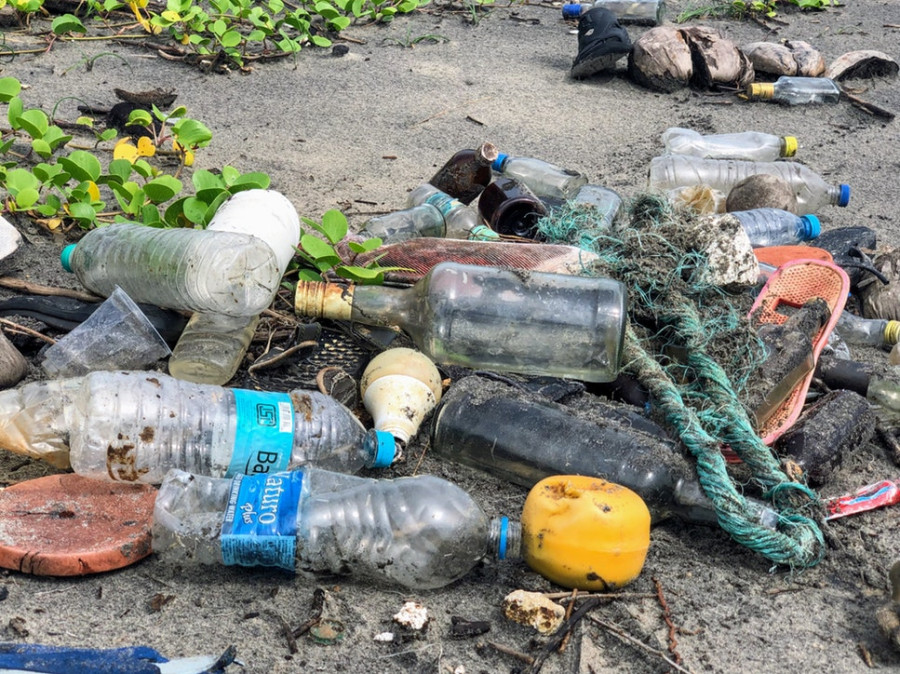Miscellaneous
The things we throw away
Waste is a sign of prosperity—the more you earn, the more you dump. It is only the wealthy that throw things away, the poor have little to discard. This rag, that piece of wood, a length of pipe, crooked nails, lids of jars—they could all be of some use some day.
Mohan Guragain
Waste is a sign of prosperity—the more you earn, the more you dump. It is only the wealthy that throw things away, the poor have little to discard. This rag, that piece of wood, a length of pipe, crooked nails, lids of jars—they could all be of some use some day.
The way we litter reveals a lot about our attitudes and our civilisation. We in Kathmandu are happy to dump our sharp, broken objects, unfiltered and unsorted, for some scavenger to comb through it and cut themselves. Early morning, before the sanitation brigade arrives, our streets are littered with garbage, causing accidental passers-by to retch in their mouths. These lines stink to you, I can imagine. It is unbearable, even for those of us exposed to such situations every day.
Or you might be of a different breed. You may have separate trash cans for biodegradable and non-biodegradable waste. You may place cola bottles into separate containers, take special precautions to dump hazardous waste. Some of you may even have composting facilities and a rooftop garden where you use manure for produce.
Waste can be a resource if utilised. In Syangja, Waling municipality has been doing just this. The residents there are required to segregate their waste at the source. The local authorities collect it separately—biodegradable and non-biodegradable waste on alternate days. According to municipal officials, they make operational profits by selling recyclable items.
Meanwhile, the Kathmandu Valley spends a hefty sum of money every year collecting and throwing away its waste. Garbage collected from Kathmandu and Lalitpur is ferried by trucks to Sisdole in Nuwakot, some 27 kilometres away along a bumpy road, stretches of which become impassable during the rainy season. The waste is not segregated—not at the source, not anywhere. The landfill site was supposed to be used for a few years, but it has been holding the Valley’s waste for more than a decade. There is no alternative site.
The damage done to the local community by the dumping site has been severe. Local residents complain of a continuous stench; discharge pollutes sources of water; and airborne diseases are rife. Locals often protest and deny garbage trucks access to the landfill, after which there are short term negotiations. The refrain is that authorities have not done enough to compensate for the harm that has been inflicted upon local life and ecology.
This is the right time for alternative measures and to plan sustainable, less costly and environment-friendly ways of garbage management. And while doing so, we need to focus on reducing waste and recycling it. Most non-biodegradable waste, such as plastic, paper and metal, can be recycled. There are already many doing so in the Valley, but we look down on those who come on bicycles, asking for recyclables to purchase. They’re doing us a great service, by buying things we would happily dump as trash. There are also some commendable citizens in the community who sweep stretches of the streets outside their compound walls regularly. We bystanders have lessons to learn.
While the role of the authorities in garbage management is foremost, civic sense in keeping communities clean is no less important. The government is not to be blamed for everything; it is also the aware citizen’s duty. For instance, people take their dogs out to defecate on the streets, but why can’t they take a little more trouble to just manage their excreta? An article published recently in Kantipur discussed the threat dog droppings pose to public health. The faeces not only contain harmful microorganisms, but they also take longer to biodegrade.
To focus on Kathmandu, talk of installing industrial-scale processing plants has not been translated into action. There were reports of firms applying to build large biogas plants to turn kitchen waste into methane and organic fertiliser, and processing wastewater before releasing it into the environment. However, there seem to be no concrete efforts towards meeting these goals.
Until we act collectively, the capital city will be a grim reminder of our unplanned urbanisation, civic inaction and failed activism.
The writer tweets @GuragainMohan




 9.68°C Kathmandu
9.68°C Kathmandu










